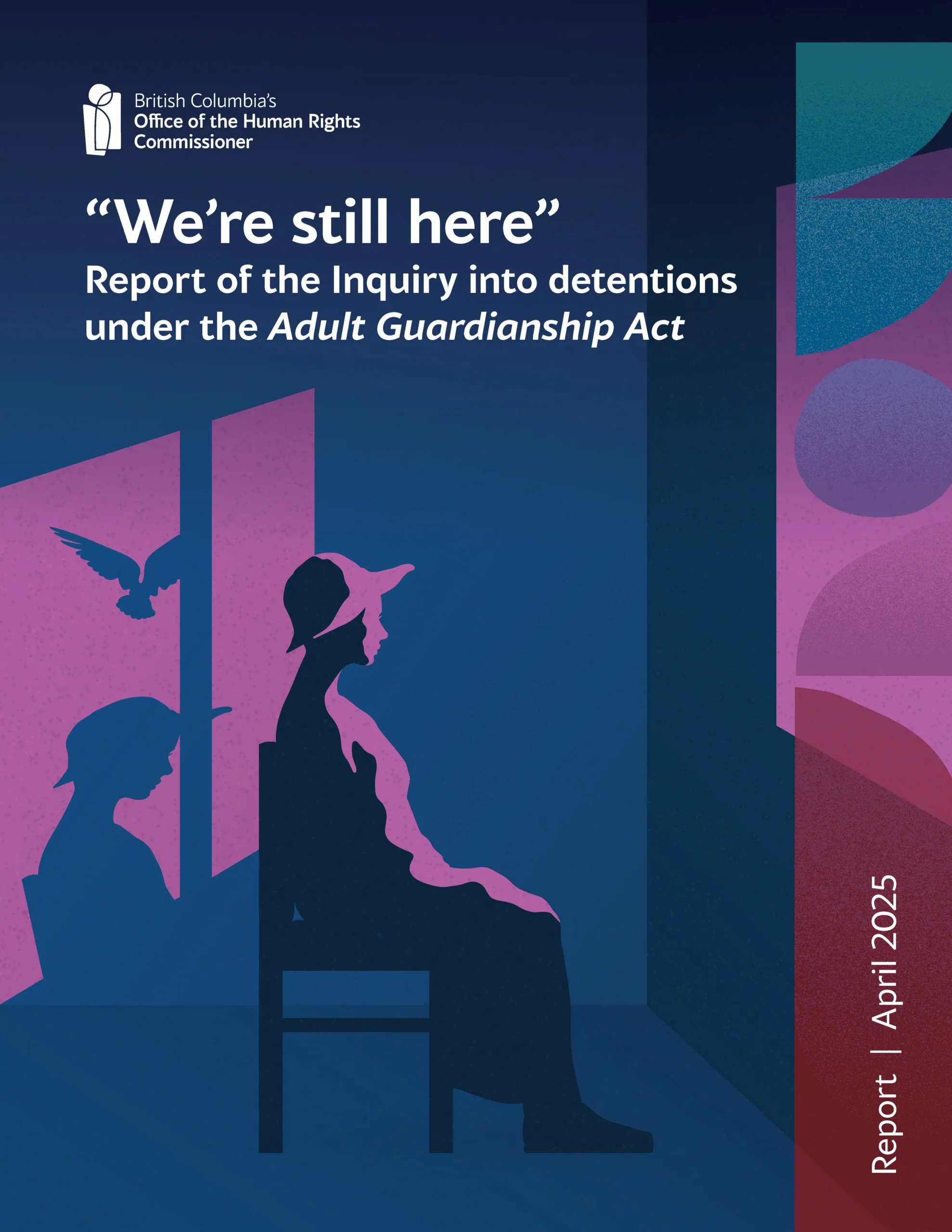On April 8th, the BC Human Rights Commissioner released the report of their Inquiry into detentions under the Adult Guardianship Act named “We are Still Here.” The Commissioner’s inquiry investigated the use of powers that the Adult Guardianship Act gives to designated agencies, such as health authorities and Community Living BC, to provide emergency assistance to adults who appear to be abused or neglected and seem incapable of giving or refusing consent to receive care.
We appreciate the thorough work done by the Commissioner and her team. The inquiry looked into how designated agencies are detaining adults in hospitals and care facilities using the Adult Guardianship Act. The resulting report shows that the law is unclear about the scope and use of these powers and that delegated agencies have been using them in ways that do not align with human rights laws and standards. The report shines a light on an issue that has received little attention and where rights violations are happening.
Inclusion BC was an engaged community partner for this inquiry. We brought up our concerns about the detention of people with intellectual and developmental disabilities. Our main concern is the inadequate access to justice under this regime. We also see these challenges in other circumstances such as detentions under the Mental Health Act, criminal justice procedures or other instances. Some of the greatest barriers for people with intellectual and developmental disabilities are the assumptions that many of these systems hold about their capacity to make choices, which most often are against them.
BC has a legal framework for supported decision-making, and we expect designated authorities, health authorities, and all government authorities to create processes to ensure that people’s ways of expressing consent, decisions, and opinions are recognized and respected. This is an accessibility issue and is part of the duty to accommodate based on disability support needs.
We expect all levels of government to accept and implement the recommendations of this report.
The Commissioner outlines it very clearly:
“We can both protect people from harm and not cause further harm in the process by respecting and protecting the necessary procedural safeguards required by international human rights law.“
This needs to be equally true for people with intellectual and developmental disabilities.
Inclusion BC stands ready to collaborate to ensure the rights of people with intellectual and developmental disabilities are equitably supported and equally protected.



